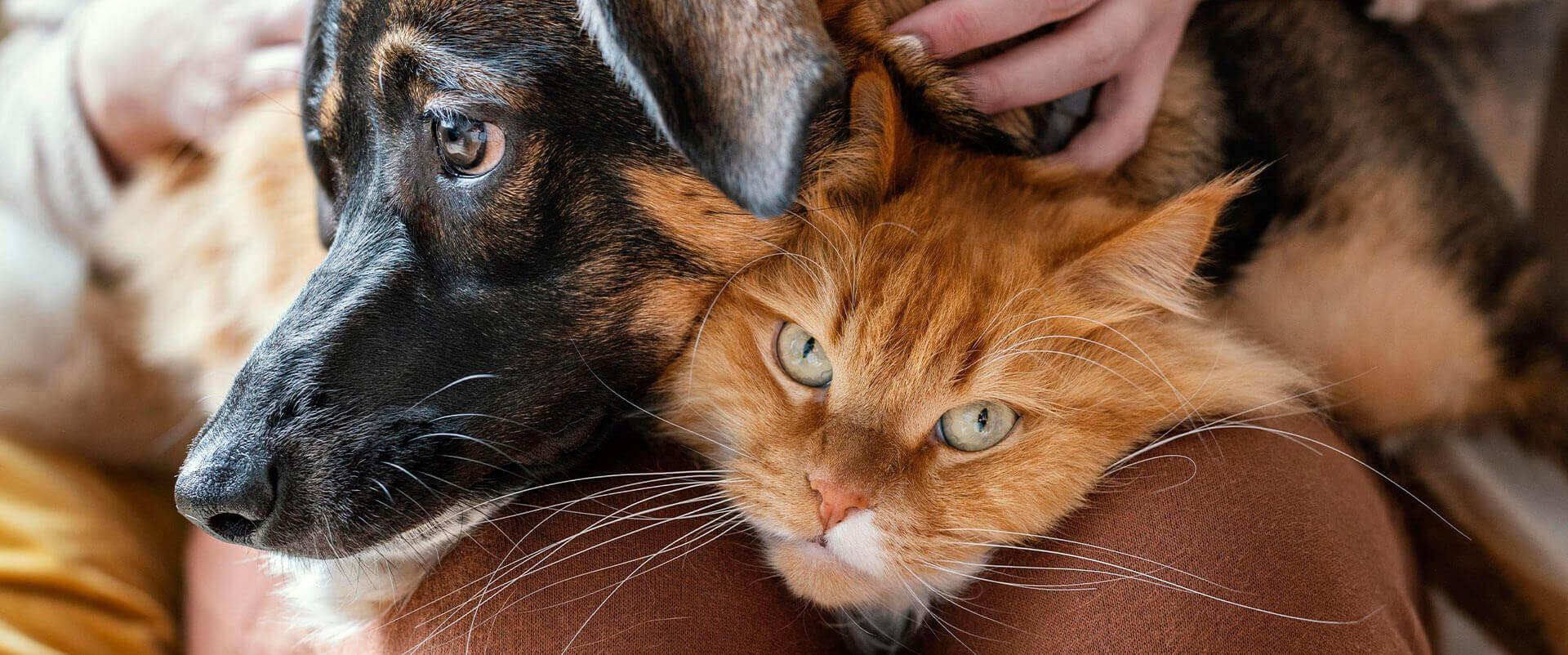Pet Loss Counseling

Coping with the loss of your pet
Pets are different things to different people. Perhaps yours was a great listener or your 5:00am workout buddy. Maybe it was the warm spot on your bed at night or even the hair on your pant legs you eventually came to accept. Whatever your pet was, losing him can be devastating. However, there are ways you can make this difficult process more bearable.
It’s OK to grieve
Not everyone feels the same way about their pets. You may find people who don’t understand your sadness. Regardless, your feelings are real and valid. Take time to be honest about your emotions, so you can grieve the healthiest way possible.
Although everyone experiences loss in their own unique way, here are a few of the most common emotions you can expect:
Denial – This is usually the first stage of the grieving process. Denial is the refusal to believe a pet has passed away. It’s typically strongest when there wasn’t a lot of time to prepare for a death, such as with an accident or short-term illness.
Guilt – This is the most common emotion related to pet loss. Many people dwell on whether or not they made the right decisions about their pet’s care. Some feel guilty for having overwhelming emotions or that they’re not handling the death appropriately.
Anger – Sometimes pet owners feel intense anger directed at anyone involved with the pet. Whether it’s other family members, friends, or a veterinarian that you feel should have saved the pet, deep feelings of blame and resentment can be experienced.
Depression – This is a natural consequence of any type of grief and its onset means you have accepted your pet’s death. If you feel extreme, debilitating depression that lasts for an extended period of time, it’s important to talk to a professional who can help you through your pain.
Find an outlet for your grief
There are many ways to work through your feelings of loss. One of the best things you can do is simply express yourself. Cry, yell, write in your journal, or better yet, talk it out with a good listener. Whatever you do, don’t stuff your feelings inside. There are pet loss counselors, support groups, telephone hotlines and online chat rooms are available too. See the list below for links to bereavement resources.
It’s also a good idea to plan activities during times you would normally be spending with your pet. Commemorating your pet is one way you can fill this space. Some ideas include holding a memorial, even if it’s just for you or finding somewhere special to place your pet’s remains. You could also create a photo scrapbook or even volunteer at an animal rescue group.
.png)
Many people find it helpful to memorialize their cherished companion animal. Here are some ideas:
- Frame a photograph of your pet.
- Keep a clipping of hair, or feathers, or braid of mane
- Make a clay paw print
- Make a photo album, scrapbook, or DVD
- Keep their collar, tags, toys, etc in a memory box
- Select a special urn for your pet’s cremated remains
- Hold a burial or memorial ceremony
- Put up a plaque or marker
- Plant a tree or flowers to honor your pet
- Volunteer time for a special cause in your pet’s memory
- Make a donation in your pet’s name
- Have a painting or sculpture created
Yes, pets can grieve too
In general, pets are perceptive and notice even small changes within the household. Whether or not there was a strong bond in place, the way a pet reacts to the loss of another pet varies widely. You may notice anything from whining, sluggishness or loss of appetite to hardly any differences in behavior. The most important thing you can do is maintain a normal routine and give plenty of extra love and attention.
Helping children with loss
For many children, the loss of a pet is their first experience with death; therefore it’s vital to allow them to work through their feelings. Although well intentioned, protecting your child by telling them the pet ‘ran away’ or ‘went to sleep’ can be confusing and cause problems in the future. Try to be as honest as possible and don’t hide your own feelings of sadness either. Sharing feelings of loss together and without judgment can be a powerful way to teach healthy coping mechanisms that last a lifetime.
Should you get another pet?
This is one of the biggest questions people ask themselves after losing a pet. The fact is, you can never replace the pet that passed away. But in time, you will be ready to share your heart with a pet again. Be sure to give yourself enough time to heal and be certain you’re ready physically, psychologically, and financially. For some, rescuing a pet from an animal shelter is a wonderful, healing way to pay tribute to the pet they lost. Rest assured, you will know when the time is right.
Although you’re going through a very difficult time, remember you’re not alone. Millions of pet lovers have endured the same loss. Time really does heal and eventually those painful reminders will be replaced by the happy memories of the good times you shared.
For a list of pet loss support groups, grief counselors, cemeteries, and crematoriums in Florida, you can visit http://www.pet-loss.net/resources/FL.shtml
Association for pet loss and bereavement – www.aplb.org
UNIVERSITY OF FLORIDA SCHOOL OF VETERINARY MEDICINE (352) 392-4700. If someone is not available to talk with you when you call, your call will be returned within 24 hours on weekdays. Weekend calls will be returned on Monday. Calls will be returned anywhere within the US.
Colorado State University – Argus Institute (staffed by counselors)
www.argusinstitute.colostate.edu/grief.htm (this website lists many local telephone resources)
Ohio State University
614-292-1823
E-Mail: petloss@osu.edu
Tufts University
508-839-7966
www.tufts.edu/vet/petloss/
Washington State University
Toll Free: 866-266-8635
509-335-5704
www.vetmed.wsu.edu/PLHL/
















